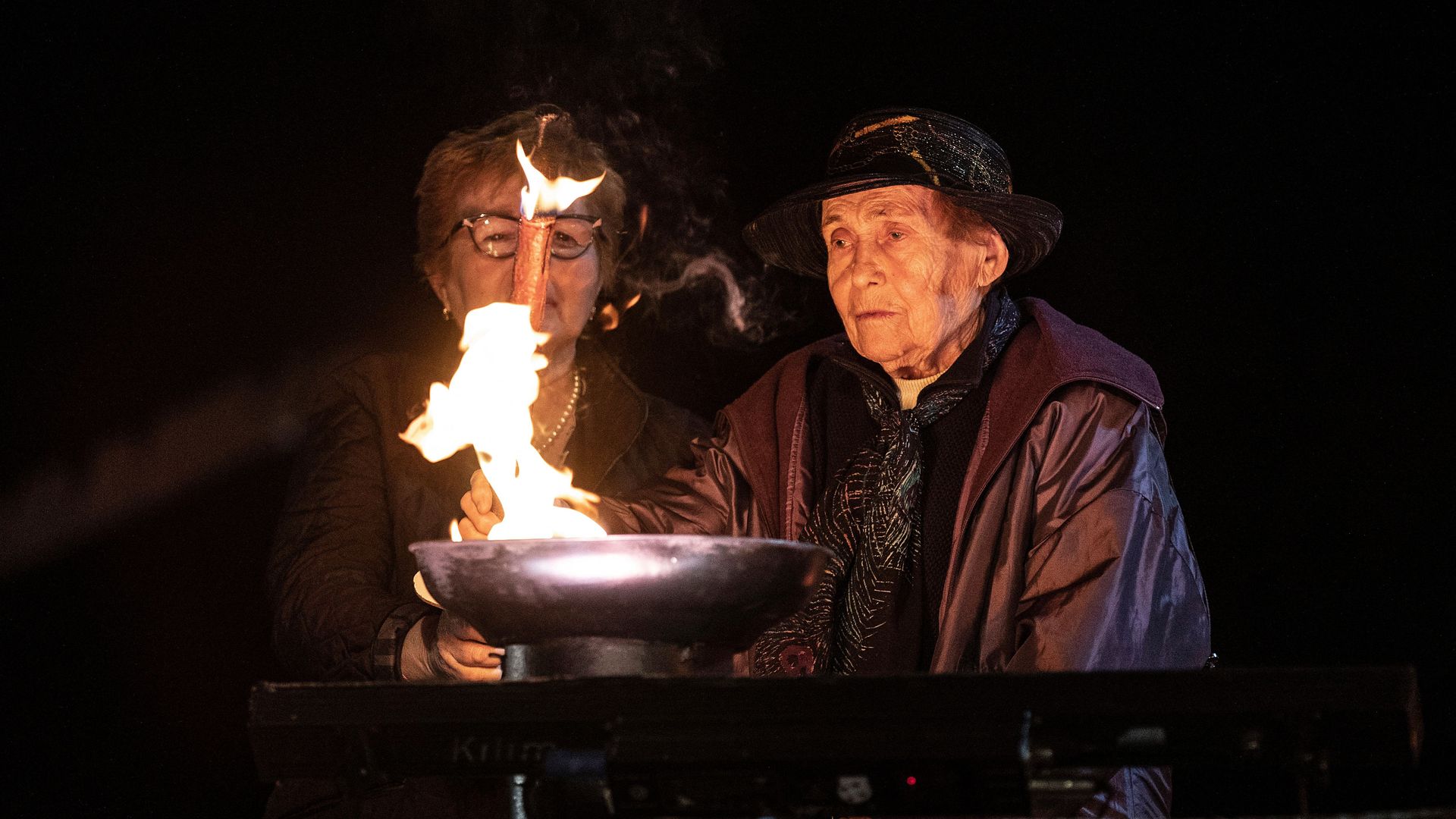Apr 8, 2021 - Politics & Policy
Holocaust survivors' campaign reminds world "It Started With Words"
Add Axios as your preferred source to
see more of our stories on Google.

Holocaust survivor Manya Bigunov lights a torch during a Holocaust Martyrs' and Heroes' Remembrance Day ceremony in memory of the 6 million Jewish men, women and children murdered by the Nazis and their collaborators, at the Yad Vashem memorial in Jerusalem on April 7. Photo by Heidi Levine/Pool/AFP via Getty Images
